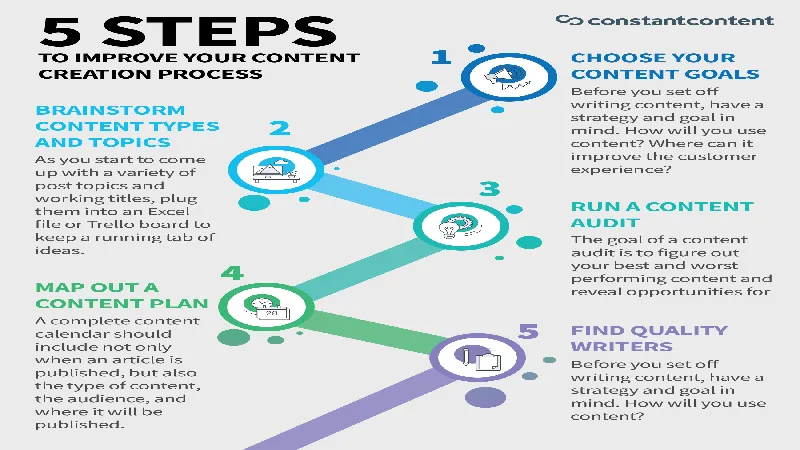In a world that is ever-evolving, the ability to adapt and innovate has become more crucial than ever. Whether in business, technology, or personal growth, the landscape is filled with opportunities and challenges that demand our attention. This exploration delves into the strategies and mindsets necessary for thriving amidst change, emphasizing the importance of resilience, creativity, and foresight. As we navigate through the intricacies of modern life, understanding these key concepts will not only empower us but also prepare us for the unpredictable paths ahead.
| Category | Description | Examples |
|---|---|---|
| Animals | Living organisms that can move and respond to their environment. | Dog, Cat, Elephant, Lion |
| Plants | Living organisms that make their own food through photosynthesis. | Tree, Flower, Grass, Fern |
| Minerals | Natural substances found in the earth that are not alive. | Gold, Iron, Quartz, Salt |
| Fungi | Organisms that absorb nutrients from their environment, often decomposing material. | Mushroom, Yeast, Mold |
| Bacteria | Single-celled organisms that can be helpful or harmful to other living things. | E. coli, Lactobacillus, Streptococcus |
The Importance of Nature in Our Lives
Nature plays a vital role in our daily lives, providing us with fresh air, clean water, and beautiful scenery. Without nature, we wouldn’t have the food we eat or the materials for our homes. When we spend time outdoors, we feel happier and healthier, making us appreciate the world around us. Learning about nature helps us understand how to care for our planet and ensures a better future for everyone.
Moreover, being in nature can reduce stress and improve our mood. Studies show that kids who play outside are more active and have better focus in school. Nature encourages creativity and exploration, allowing us to discover new things. By taking care of our environment, we not only benefit ourselves but also the animals and plants that share our planet.
Fun Ways to Explore the Outdoors
Exploring the outdoors can be fun and exciting! One great way to connect with nature is through hiking. Whether you’re walking on a simple trail or climbing a mountain, hiking allows you to see amazing views and discover plants and animals. You can also go for a bike ride or have a picnic in the park to enjoy the sunshine and fresh air.
Another fun activity is birdwatching. You can learn about different types of birds by observing their colors and sounds. Bringing a pair of binoculars can help you see them up close! Gardening is another great way to explore nature, where you can grow flowers, vegetables, and herbs. It teaches patience and responsibility as you watch your plants grow.
The Benefits of Gardening for Kids
Gardening is not just a fun activity; it has many benefits for kids. When children plant seeds and watch them grow, they learn about responsibility and patience. They also get to experience the joy of eating fruits and vegetables they’ve grown themselves! Gardening helps kids understand where their food comes from and encourages them to eat healthier.
Additionally, gardening is a great way to learn about science. Kids can study how plants grow and what they need to survive. It’s also an excellent way to get exercise while enjoying the outdoors. Working in the garden allows kids to develop fine motor skills and teamwork when they garden with friends or family.
Protecting Our Environment for Future Generations
It’s important to protect our environment so that future generations can enjoy the beauty of nature. Simple actions like recycling, conserving water, and reducing waste can make a big difference. When we take care of our planet, we help keep our air clean and our water safe for all living things.
Teaching kids about the environment encourages them to be responsible citizens. They can learn how to reduce pollution and help wildlife by creating habitats in their own backyards. By becoming stewards of the earth, they can ensure that nature remains healthy and vibrant for years to come.
Animals and Their Habitats
Animals are an essential part of our ecosystem, living in various habitats around the world. From forests to oceans, each animal is adapted to its environment. For example, polar bears live in cold Arctic regions, while camels thrive in hot deserts. Understanding these habitats helps us appreciate the diversity of life on Earth.
Learning about animals also teaches us the importance of conservation. Many species are at risk due to habitat loss and pollution. By protecting their habitats, we can help ensure their survival. Kids can participate in local wildlife programs to learn more about the animals in their area and how to care for them.
The Role of Water in Nature
Water is one of the most important resources on our planet. It is essential for all living things, including plants, animals, and humans. We need water to drink, grow food, and keep our environment healthy. Rivers, lakes, and oceans are vital habitats for many species, and they also provide us with recreation and relaxation.
Learning about the water cycle helps us understand how water moves through our environment. It starts with evaporation, where water turns into vapor, and ends with precipitation, where it falls as rain or snow. By conserving water and keeping our waterways clean, we can protect this precious resource for future generations.
Frequently Asked Questions
What are the benefits of learning to code?
Learning to code helps improve problem-solving skills, boosts creativity, and opens up job opportunities in technology. It also allows you to create your own websites and apps.
How can I start learning coding?
You can start learning coding by using free online resources like Codecademy or Khan Academy. Many websites offer beginner-friendly tutorials and exercises.
What programming languages should I learn first?
Begin with languages like Python or JavaScript. They are easy to learn and widely used in web development and data analysis.
How long does it take to learn coding?
The time to learn coding varies. With consistent practice, you can grasp the basics in a few months, but mastering it takes longer.
Can coding be useful in everyday life?
Yes! Coding can help you automate tasks, understand technology better, and even create simple programs to solve daily problems.
Are there coding communities for beginners?
Absolutely! Websites like Stack Overflow and GitHub have communities where beginners can ask questions, share projects, and learn from experienced coders.
Is coding hard to learn?
Coding can be challenging at first, but with patience and practice, anyone can learn it. Start slow and take one step at a time!
Summary
In this article, we learn about the importance of recycling and how it helps protect our environment. Recycling means turning old items into new products instead of throwing them away. This process reduces waste, saves energy, and conserves natural resources. For example, recycling paper saves trees, while recycling plastic keeps our oceans cleaner. By recycling, we can all contribute to a healthier planet. The key takeaway is that every small effort counts, and by working together, we can make a big difference for future generations.



